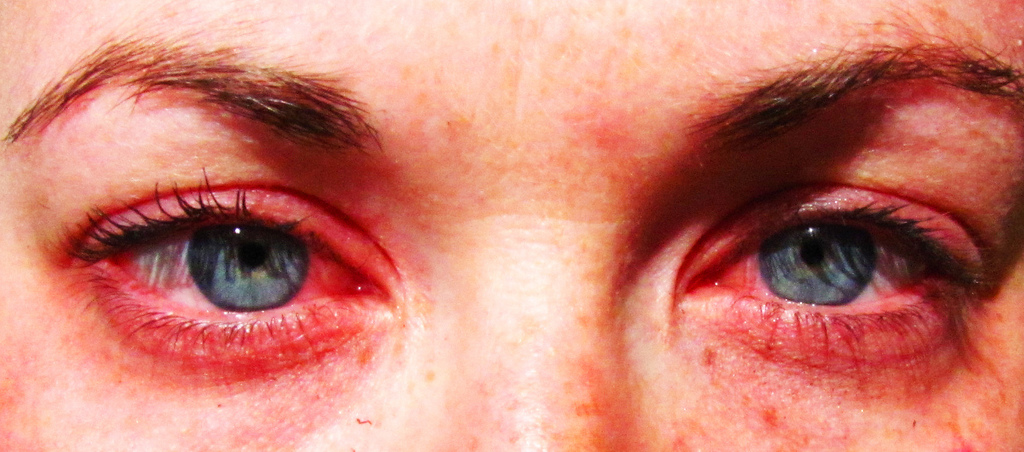Eye allergies occur when the eyes become red, swollen and itchy, with tearing and burning when reacting with harmful substances called allergens. This allergic reaction is called conjunctivitis. Allergies affect the conjunctiva which is clear skin that covers the inside of the eyelid. Due to allergic reactions, the white part of the eye called the sclera gets red, swollen and itchy.
Eye allergies are connected to other allergic problems like hay fever (allergic rhinitis) and atopic eczema (dermatitis). It is normally observed that a person with eye allergies has nasal allergies as well, with itchiness and sneezing (rhinoconjunctivitis).
Most allergens are present in the air and include mold, pollen, dust, and pet fur. Eye allergies are also connected with the season and in some cases people develop allergies when they come into contact with perfume, smoke and when more severe, even to light too. There are other causes of allergies such as adverse reactions to cosmetics or antibiotic eye drops and sometimes even from certain foods or bee stings.
Your eyes are precious and need regular care. Often times ailments related to the eyes are hereditary and need specialized medical assistance. However, there are common allergies like conjunctivitis, glaucoma, etc., which occur naturally and can be managed by proper eye care. Eye allergies often react to allergens that are harmful foreign substances entering the eye area. A good example is dust entering that can cause excessive tear production in sufferers.
Treatment options for eye allergies include:
1. Avoidance principle
The most effective medication is prevention. A good case in point is the Saharan peninsula where people wear protective headgear that covers their eyes. If you are allergic to any synthetic materials, stay away from such components. Regular cleaning of household furniture and home will keep you away from dust allergies. You can also install filters in your home to ward off external pollution. Make sure your air conditioners contain adequate filters. In outside environment, make sure to wear sun protection glasses with adequate UV cover.
2. Prescriptions
There are many over the counter medications available for treating common eye allergies. They are widely available and cheap. You can consult your ophthalmologists for the best brands available. Some of them are simple eye washes that cleanse your eyes of allergens. If over the counter medications don’t work, you can ask for alternative medications that might be more expensive, but effective. However, make sure you have asked an expert eye specialist about your signs and symptoms.
3. Do not rub
When eyes itch, many people make the mistake of rubbing aggressively. This results in scratches in the eye area. Your irises are particularly affected. Instead of vigorously rubbing your eyes, gently rub them with a fresh towel. If you continue to scrub your eyes, the irritation or allergy symptoms will only worsen. If conditions persist, visit a good ophthalmologist for proper diagnosis and anti-allergy medication.
4. Clean environment
While attempting to clean your house, always use a wet mop instead of dry dusting. The reason being wet mops retains the dust and do not allow it to spread. If you dry dust, the dust particles have a chance of entering your eyes and causing irritation. A clean environment ensures that there are foreign allergens present to enter your eyes.
The above four options will enable you to keep eye allergies and infections at bay. If not treated at the right time, these allergies can be complicated. Avoid such situations by consulting your eye specialists.
Sourced from: Allaboutvision
Photo by Parrchristy / CC by
Posted on May 22, 2023



